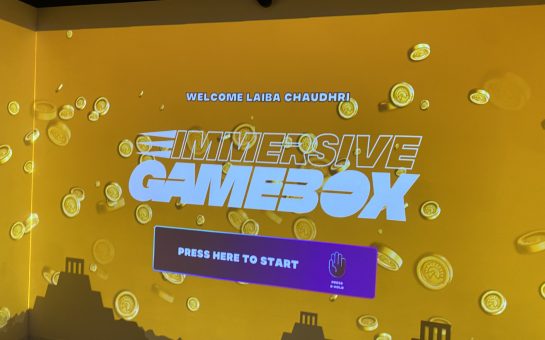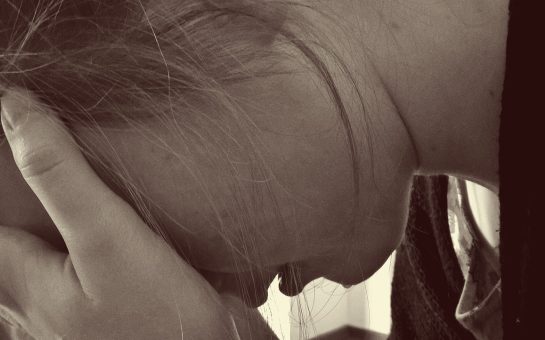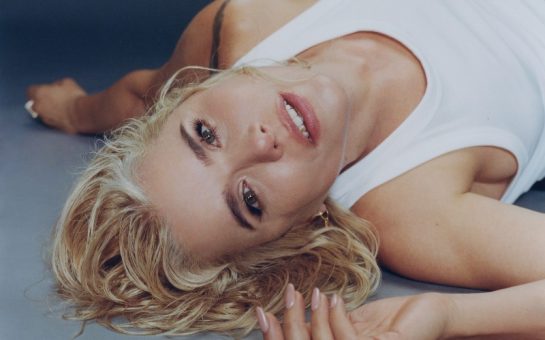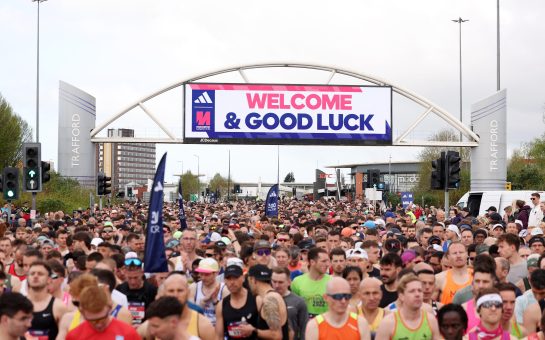Refutronic choir – GRRRL is a fusion performance in which, eight women from different backgrounds come together to tell their stories of struggle, inequality and change through music.
GRRRL is part of the Journeys Festival International which is coming back to Manchester for its third edition – the festival will last 10 days, showcasing talent from over 100 artists from the refugee and asylum seeker community.
Events will vary from performances, screenings, workshops and art and will take place all around the city.
The eight GRRRL women have prepared their performance in a week ready to share it with you on Sunday 15th October at the Cathedral Gardens.
The choir takes you on a journey around the world to countries like Brazil, India and Egypt in a trance of rafiki jazz as well as other performances embodying a variation of languages and cultures expressed through a blend of genres such as funk, soul, gospel, and Sufi rock.
GRRRL member, Sarah Yaseen, 45, told MM about her experience working through a childhood within a strict orthodox Islamic community, freeing herself from the entrapment of an arrange marriage and learning to believe in herself through music.
Sarah is a single parent of three and a Sufi folk/rock singer and musician. She is a third culture kid, of Pakistan heritage, born and raised in England.
Sarah told MM: “Music has helped me survive. I have been through severe depression. If I didn’t have singing, I’m not sure where I would have been. I would probably have been addicted to heavy doses of pills.”
When Sarah was a child, her mother had arranged who she would marry when she came of age. “Isn’t that absolutely crazy?” She asked.
In Sarah’s song ‘I am mine,’ she says: “A promise that wasn’t mine”. She only got the courage to leave her husband after her father had passed away.
Having felt like she missed out on her childhood, Sarah now gives her inner child every opportunity to come out.
She explained: “For the first time this year, I was able to free that inner child. Grown men in the audience were in tears. I just can’t believe how brave I am.”
“The music has healed me. The more I’m singing, talking and sharing, the better I feel.
“It’s not easy to perform in front of an audience, the pre performance anxiety and post-performance blues. The best part is when it finishes, and you have that sense of massive achievement.
“The feedback from the audience, at first, you’re fighting it off – I don’t know what it is with women, but we don’t like to accept compliments. We stamp them down or say: ‘Oh no no, it’s because of this or that’.
“Like I used to use my brothers, saying that they’d influenced me, but they haven’t, I’ve done it all myself.”
Hearing people repeatedly say they loved the concert or that Sarah sounded amazing has helped her to believe it. “You start gracefully accepting it,” she said.
“So, when you have those days or moments where you don’t believe in yourself, you look back,” she added.
Sarah has a wall in her house of pictures of herself at events to remind her of all of the wonderful things people have said to her and what she has achieved.
The mother of three continued: “It’s for you more than anything else. It’s energy and fire. Within me there’s a teenager and she’s trying to free herself because of the entrapment of the arranged marriage that I experienced, the depression – and finally, the inner child is freeing herself.
“Every time she comes out and she experiences a new culture, a new country and it’s incredible.
The singer started writing and composing in 2009, her first performance was in Copenhagen town hall, Denmark for Women’s International in front of 700 women.
She recalled: “I was so petrified from just the fear of my own insecurities. I was fighting with myself, every time I performed, I went home and I cried, telling myself that I shouldn’t be doing this.
“Now I am aware of my own skill. Very casually I can create compositions on the spot.
“It is very difficult as a Muslim woman. I joined a singing orthodox Islamic group of women once – Muslim women aren’t supposed to sing in front of men, orthodox Islam is very strict.
“I always believed that my community was ‘unconservative’ and so I was afraid of speaking out.”
Sarah told MM about going out into white communities with this group and singing. She recalls members of the audience coming up to her in tears, thanking her.
“It’s wonderful to know that I have proved to myself that I can do it,” she asserted.



